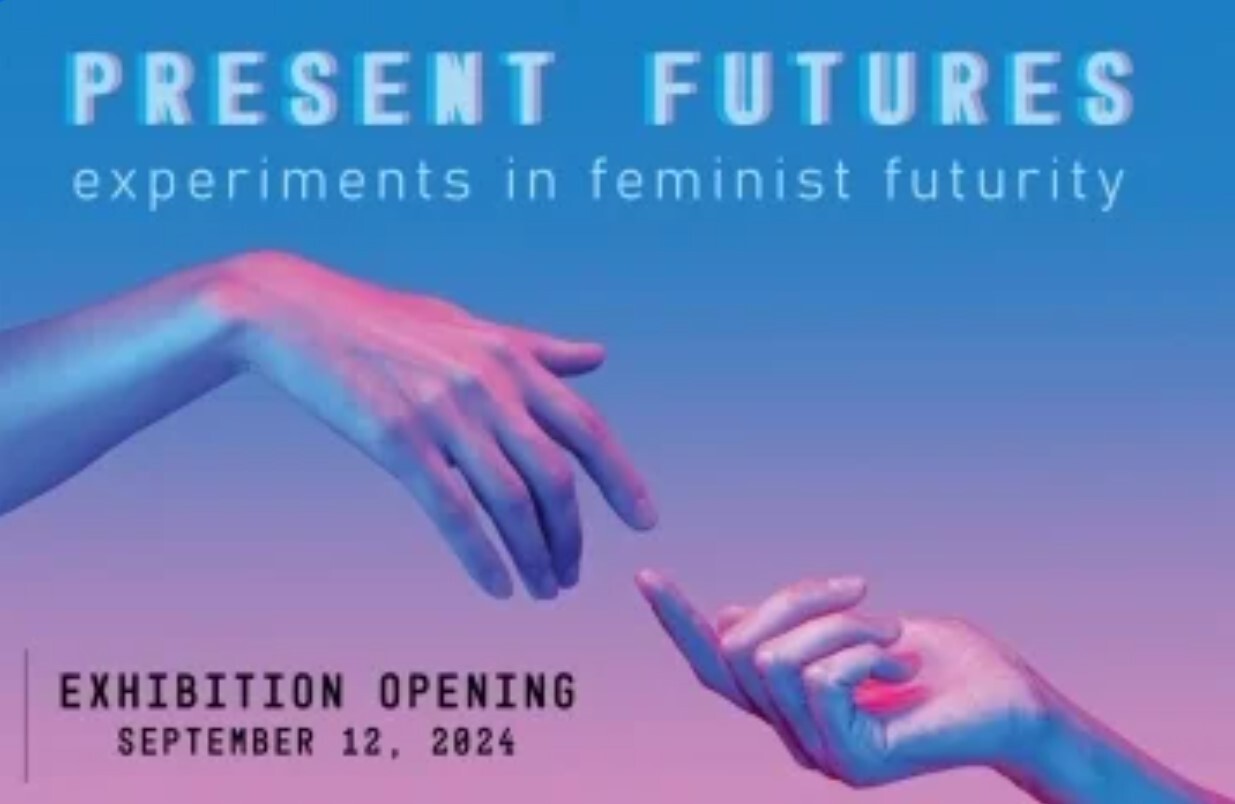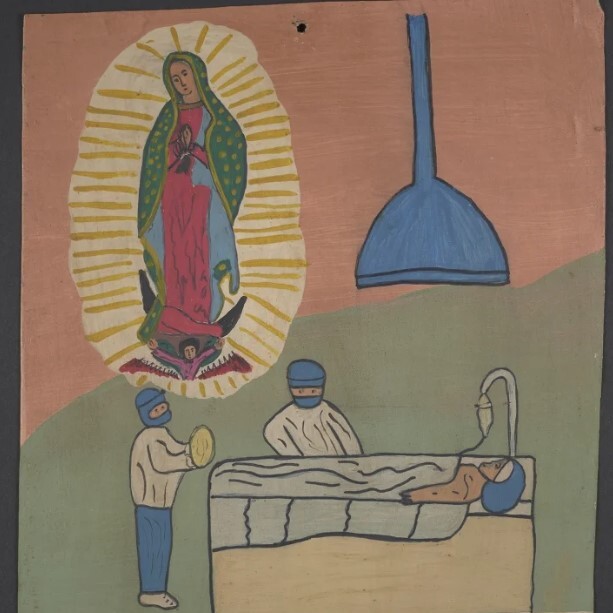Gain insight into Mexican religious folk practices through these selections from the Dr. William H. Helfand collection of ex-votos and devotional paintings on medical subjects. Ex-votos are votive paintings usually hung in churches and religious venues as a sign of gratitude for received blessings or healings. The collection includes ex-votos dated between 1868 and 2002 and are dedicated to Jesus Christ, the Virgin Mary, Saint Anthony of Padua, Saint Cosmas, and other Christian saints.
The tradition of creating ex-votos in Mexico began in the 16th century. Once a practice of the wealthier class, the lower classes took on the tradition after Mexico gained independence from Spain in 1821. With this social shift came a corresponding change in the ex-votos themselves. In the 19th century, tin replaced the expensive canvas that had previously been used, and local, unschooled painters began to specialize in this kind of production, gradually developing personal styles.
The miracle or the difficult situation in which the worshippers found themselves before the divine intervention occupies the central part of the ex-voto. Health-related miracles are among the most common found in Mexican ex-votos, together with miracles associated with surviving car accidents, earthquakes, animal attacks, and other violent events.
This exhibit is curated by Manuel de la Cruz Gutierrez, Director for the Holman Biotech Commons, Elizabeth Blake, Eugene Garfield Resident in Science Librarianship, and Samantha Hill, Curator of Civic Engagement at the Kislak Center for Special Collections, Rare Books and Manuscripts.
The William H. Helfand collection is part of the Kislak Center for Special Collections, Rare Books and Manuscripts.

